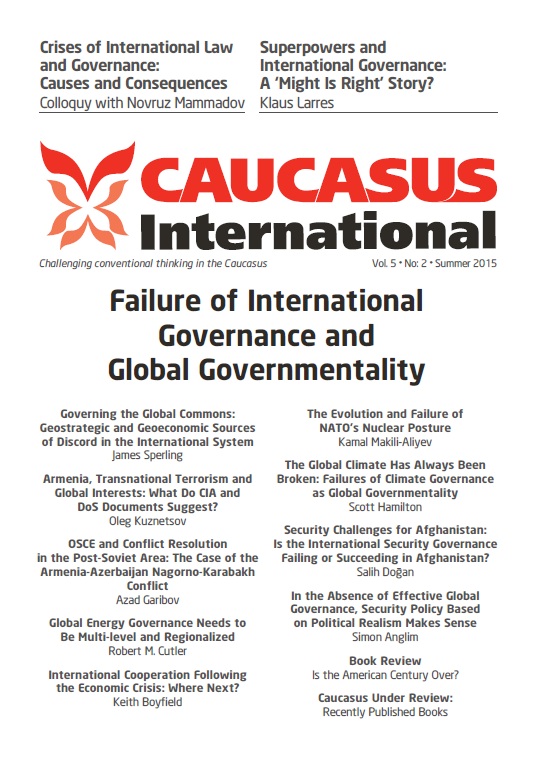Global Energy Governance Needs to be Multi-level and Regionalized
The exclusive focus on universal-level global energy governance is problematic. Even in the European Union, emphasis is placed on multi-level governance in the energy policy issue-area. Yet although the EU has been near the forefront of advocacy for global energy governance, it has failed to consider systematically, or at all, the advantages of multi-level governance from the global through the regional to the national levels, as well as the cross-cutting transnational and transgovernmental levels. The contrast between the failure of regional European-Ukrainian-Russian energy cooperation on the one hand and, on the other, the success of regional Azerbaijani-Georgian-Turkish energy cooperation drives the point home. Incentive structures of practitioners and academics, conditioned by the sociology of knowledge, inhibit common dialogue over energy governance. Academic-policy boundary organizations represent only a special case of knowledge transfer processes. If overarching global policy goals are to be achieved, then idiosyncratic regional contexts cannot be ignored in global energy governance. They must be respected and allowed their relative autonomy.
Latest news
- 03/17/2020 Call for Submission: “Non-Alignment Movement and Its Perspective in International Affairs”. Deadline: 1 July 2020 2623 views
Popular articles
- 02/24/2020 The Role of Irredentism in Russia’s Foreign Policy 2535 views
- 02/24/2020 Construction of sub-national identity vis-à-vis parent state: Gagauz case in Moldova 2216 views
- 02/24/2020 The Conflict in Ukraine - The Geopolitics of Separatism and Divergent Identities (Commentary) 2071 views
- 02/24/2020 The Role of the Soviet Past in Contemporary Georgia 2044 views





